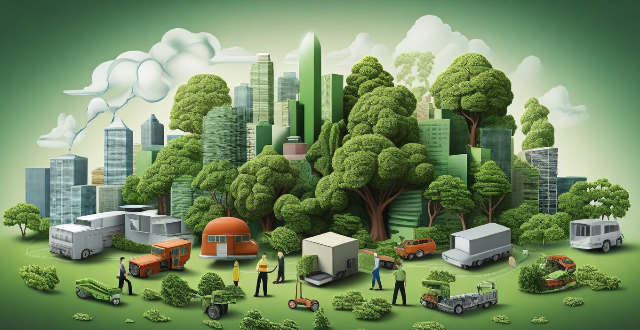The impact of climate commitments on economic growth and development is multifaceted, with both positive and negative aspects. On the positive side, these commitments stimulate innovation in renewable energy sources and energy efficiency, create new markets for green products and services, improve public health by reducing air pollution, and enhance international cooperation. On the negative side, there are transition costs associated with shifting from fossil fuels to renewable energy sources, potential job displacement in traditional industries, trade-offs between environmental protection and economic growth, and unequal distribution of benefits and costs. Despite these challenges, prioritizing sustainability can lead to long-term economic growth while protecting the environment for future generations.

Impact of Climate Commitments on Economic Growth and Development
Climate commitments, such as those made in the Paris Agreement, aim to reduce greenhouse gas emissions and mitigate the effects of climate change. These commitments can have both positive and negative impacts on economic growth and development. Let's explore these impacts in detail:
Positive Impacts
1. Stimulating Innovation and Technology Development
- Climate commitments encourage research and development in renewable energy sources, energy efficiency, and other clean technologies.
- This leads to job creation in new industries and sectors, driving economic growth.
2. Creating New Markets and Opportunities
- The transition to a low-carbon economy opens up new markets for green products and services.
- Companies that adapt to these changes can gain a competitive advantage and contribute to economic growth.
3. Improving Public Health and Productivity
- Reducing air pollution from burning fossil fuels improves public health, reducing healthcare costs and increasing productivity.
- A healthier workforce can contribute to economic growth by being more productive.
4. Enhancing International Cooperation
- Countries working together on climate commitments can strengthen trade relationships and foster diplomatic ties.
- This cooperation can lead to shared technological advancements and economic opportunities.
Negative Impacts
1. Transition Costs
- The shift from fossil fuels to renewable energy sources can be costly for businesses and governments.
- These costs may slow down economic growth in the short term but are necessary for long-term sustainability.
2. Job Displacement
- The transition to a low-carbon economy may result in job losses in traditional industries, such as coal mining and oil extraction.
- Governments need to provide support and training programs to help affected workers transition to new jobs.
3. Potential Trade-offs Between Environmental Protection and Economic Growth
- In some cases, strict environmental regulations may limit economic growth by increasing production costs or slowing down development projects.
- However, these regulations are essential for ensuring long-term sustainability and avoiding greater costs associated with climate change impacts.
4. Unequal Distribution of Benefits and Costs
- The benefits of climate commitments may not be evenly distributed among different countries and populations.
- Developing countries may face challenges in meeting their commitments due to limited resources and capacity.
In conclusion, while climate commitments can present challenges for economic growth and development, they also offer numerous opportunities for innovation, job creation, and improved public health. By prioritizing sustainability, countries can achieve long-term economic growth while protecting the environment for future generations.